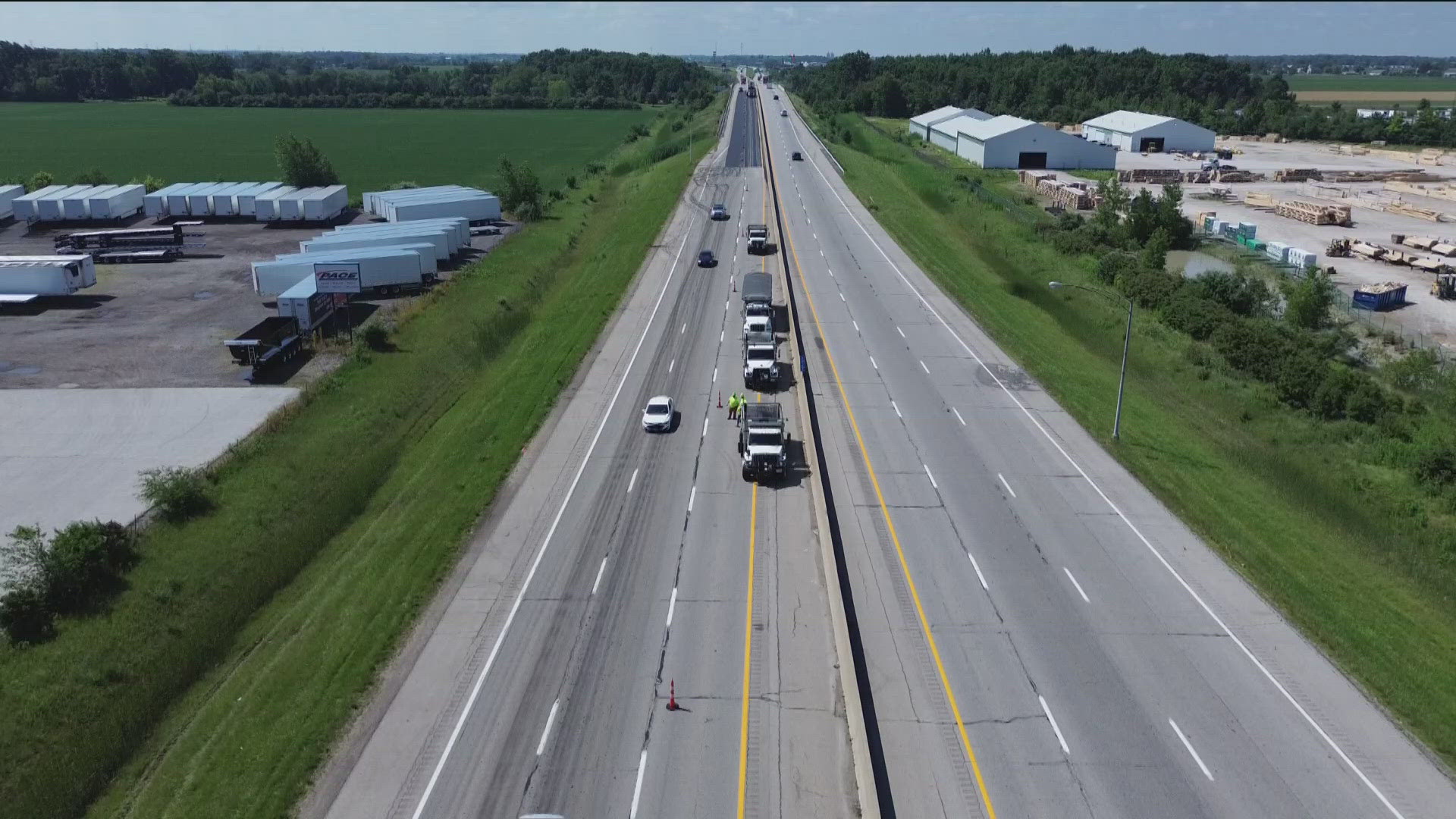NORTHWOOD, Ohio — You see an orange barrel and you might let out a groan, but the work being done is to make roads safer for all of us.
Unfortunately, the Ohio Department of Transportation and Ohio State Highway Patrol say too many times drivers aren't paying attention and a worker gets hit and sometimes killed.
Tom Morris is the transportation manager for ODOT's Northwood Post. He's been working in construction zones for about 25 years and has seen cars come way too close for comfort.
"Sometimes you'll lose your hard hat," Morris said. "Yeah, somebody's going past you. You know, it'll blow off."
That's the least of what ODOT workers are dealing with in construction zones.
"It's nerve-wracking, especially when you send guys out to set up a zone and traffic's moving 70 miles an hour," Morris said.
In some cases there's barely anything standing between workers and traffic, maybe just a barrel or cone.
"We had actually three side mirrors come off of vehicles just from getting too close to the grabber cones or the paver," Morris said. "Now the guys on the paver back there, they are right on the line. So you know they could they could reach out just six inches and they're right there with traffic."
OSHP is working with ODOT to keep workers safe in construction zones through enforcement.
OSHP reports in the last five years, there have been 91 deadly crashes in Ohio work zones. 10 have been in Northwest Ohio. Those figures include workers, drivers and pedestrians.
"So what we see most is they don't change driving behavior, they treat it as any other road," OSHP Lt. Matt Geer said. "They ignore the signs, ignore the barriers, ignore the workers and that's why we're here, to make sure that they abide by the traffic rules."
Because when they don't, the worst can happen. That's why ODOT and OSHP are asking drivers to pay attention, look for speed limit signs ahead of work zones, slow down and don't be distracted.
"They're like anybody else or human beings. They have heart, souls, families. They want to go home. They're out there doing a tough job," Geer said. "They're trying to put food on the table and pay their bills and their families want them to come home. Give those people the respect they deserve."

